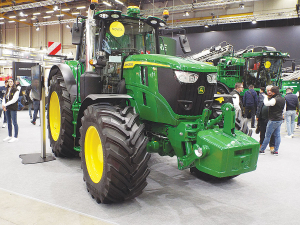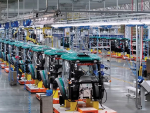With June ending and following the most upbeat National Fieldays for several years, tractor dealers are reporting a lift in sales.
The Tractor and Machinery Association (TAMA) is reporting that tractor sales, often the barometer of how agribusiness is feeling, having increased in the January to June period by 7.5% across the country, compared to the same period in 2024.
Total sales reached 1252 units overall, with the North Island up around 8.1% at 811 units year to date and the South Island climbing by 5.8% to 441 tractors. Of the overall total tractors sold, 0 to 40hp made up 20% of the market, 40 to 100hp achieved 23.5%, 100 to 150hp was the key sector with a 39% share, 150 to 200hp came in at 11.5% and over 200hp recorded just 6% of sales YTD.
TAMA president Jaiden Drought says the market remains a little soft, despite a significant increase in rural confidence.
"Fieldays was positive for most exhibitors, with reports of plenty of lead generation, although at this stage, those enquiries haven't flowed throught to significant increases in sales volumes.
"There still appears to be a cautionary approach, but my gut feeling is that the period from October to May 2026 is going to be strrong."
In the UK, during the first half of the year, farmers registered 4,869 tractors, 17% fewer than in January to June 2024, about 25% below average, and the lowest level recorded at this point in the year, since 1998.
The news coincides with the National Farmers Union (NFU) commenting that any further agricultural concessions would cripple an already hard-pressed farming and growing sector, which it claims "had done its bit" on trade with the US.
The commentary comes amidst serious concerns that the US is likely to demand even greater access to the UK agricultural market, in return for reducing or removing the additional 10% tariffs applied by President Donald Trump earlier this year.
NFU president Tom Bradshaw said: "It's understandable that the UK government wants to eliminate the 10% tariffs on all goods going to the US, but we have to ask - at what cost?
"The US has made it clear they want greater access to our market for their agricultural produce, and it's not afraid to throw its weight around to get what it wants.
"The UK agriculture sector has already done its bit, paying with access to our beef and ethanol markets to reduce tariffs on cars, aluminium and steel. We have nothing more to give."











